-

Pregnancy screening options and the role of NIPT
31 / 03 / 2019Posted by:Dr.M.Raszek
The primary concern and screening available for women is that for chromosomal abnormalities. Until the recent introduction of non-invasive prenatal testing (NIPT), the screening program consisted of testing for specific blood markers (whether protein molecules or smaller chemicals) and an ultrasound, in the first and second trimesters of pregnancy. According to obstetrics guidelines, pregnant woman is supposed to be clearly told about her screening and testing options, and that includes traditional approaches, NIPT and even diagnostic invasive testing. Diagnostic invasive testing carry small but real risk of pregnancy loss. This is the primary reason why NIPT has gained so much in popularity because women don’t want to undergo diagnostic testing if they don’t have to, and place their pregnancy at risk. But because traditional screening is nowhere near as accurate as NIPT, with traditional screening, lots more women end up undergoing confirmatory diagnostic testing that they would not have to if they took the NIPT test in the first place.
-

A Review of The Language of God by Francis Collins
12 / 03 / 2019Posted by:M.Mulligan
Francis Collins’ chief goal in writing his book, The Language of God, is to bridge the perceived gap between religion and science. In this task, he succeeds at making the case to a religious audience, that good theology incorporates new evidence; in particular, the evidence in support of evolution. Collins’ argument falls short when he draws a line between religion and science, saying they have mutually exclusive domains of inquiry. This arbitrary line he draws leads him to make some tenuous conclusions about the origin of the universe, and the emergence of morality in humans.
-

Caregivers of patients with rare diseases
28 / 02 / 2019Posted by:Dr.M.Raszek
Being a rare disease caregiver is an intimate story of compassion, as almost all caregivers live in the same household as their care recipient, and this usually involves caring for an immediate relative. For most, it is a tale of familial love and enormous dedication, which is staggering in proportion to what a daily routine of a typical adult might be. Only 1% is dedicated to the care of non-family members. Caregivers are modern-day heroes, quietly going about their demanding lives, without fanfare, and unfortunately too often, without much support to ease their difficult duties. On this international Rare Disease Day we dedicate this post to the topic of those who take care of the people afflicted with such conditions.
-

Genetics of sexuality
09 / 02 / 2019Posted by:Dr.M.Raszek
Valentine’s Day is coming and that day has become synonymous with the celebration of romance, partnership, love… and potentially sex at the end of the romantic, seductive day. Of course, the reality often strikes far from the fantasy, but fulfilled sexuality is a normal expectation of a healthy lifestyle, and perhaps there is no other day throughout the year that we go to such lengths to please and seduce each other. So to celebrate this unique day, we want to delve into the genetics of sexuality!
-

The value of DNA sequencing at birth
30 / 01 / 2019Posted by:Dr.M.Raszek
Can sequencing at birth identify genetic findings that are potentially life-saving? Finally, the first results from the BabySeq project which investigated the impact of full genome sequencing in babies soon after birth suggest that DNA testing can uncover the risk of childhood-onset disease in much higher rates than previously anticipated, at nearly 10% of infants (9.4%). We are talking about conditions that were otherwise completely unanticipated to be present in these children based on their appearance, clinical examination, or family history. Furthermore, adult-onset conditions, which are typically not recommended to be investigated in children, were discovered at a rate of 3.5% in otherwise presumed healthy infants.
-

Most gossiped about genetic news of 2018
11 / 01 / 2019Posted by:Dr.M.Raszek
For a third year in a row, we are recounting the most shared genetic stories on social media so this has become our tradition to start the year. It is a collection of stories where the only metric we look at is the number of shares on stories about anything related to DNA. These can range from totally absurd, to very fascinating pieces of content that we would otherwise never come across if it wasn’t for this yearly review. Here are the most shared DNA-related stories on social media in 2018!
-

The top three protections for physicians using genomic medicine
31 / 12 / 2018Posted by:Dr.M.Raszek
Are you a doctor who wants to adopt genomic medicine now?
Are you a doctor who has already introduced the use of DNA sequencing in your practice to assist your patients in their medical care, and want to make sure that the technology is used safely for the benefit of all patients?
Or are you a doctor who simply encounters DNA sequencing test results, and wonders about the validity of the results or the safe practice use of such results?
The following are the three most basic, but critical, steps to help you ensure safe practices, protect your patient from the harm of any test misuse, and at the same time, protect yourself and your practice from liability.
-
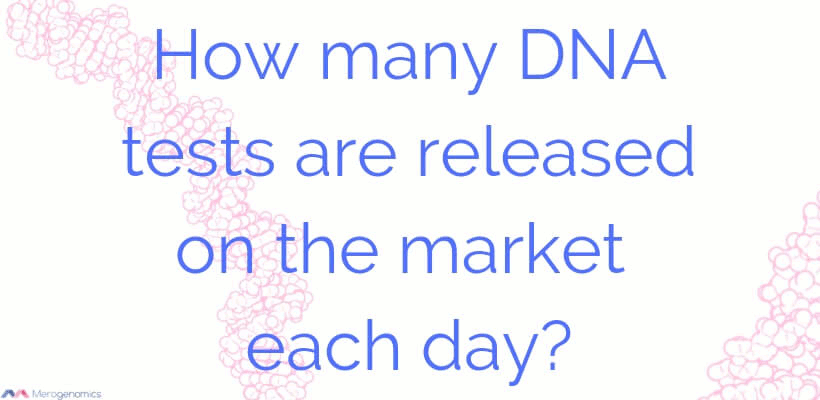
DNA quality consequence on your DNA test results
05 / 12 / 2018Posted by:Dr.M.Raszek
So you want to sequence your genome, all of your DNA, and look deep into the hidden secrets of your biological code? Then you sure will want to get quality information! It is easy to get excited about the results, but the majority of people who purchase any type of commercial DNA sequencing test, and even many of those selling it, actually have a poor understanding of the complexity of the process and the meaning of the results. With the speed of new DNA sequencing tests coming onto the market (at least 10 medical DNA tests are released per day, and who knows how many non-medical tests), many of them, if not the majority of the available tests on the market, will be providing DNA results that do not have any scientific validation, and hence no actual utility apart from having a bit of fun. However, while you are having some fun, you have to remember that you are disclosing access to your most private and precious biological information, your DNA. Instead, DNA information should be closely guarded by families, and retained for serious medical needs.
-

Birth of first genetically edited babies
30 / 11 / 2018Posted by:Dr.M.Raszek
When it comes to the news in genetics, very few blockbuster headlines come out that can be compared to the degree of what was announced this week from China: researchers declared the birth of the first human baby that was genetically modified prior to birth. We are ushering in the era of designer babies. It was not that long ago that we discussed this topic as a too distant possibility to merit serious discussion. Indeed, not that long ago it was not. It is incredible that in a mere few years, China has made such leaps in the use of genome editing technologies to start experiments on human subjects.
-
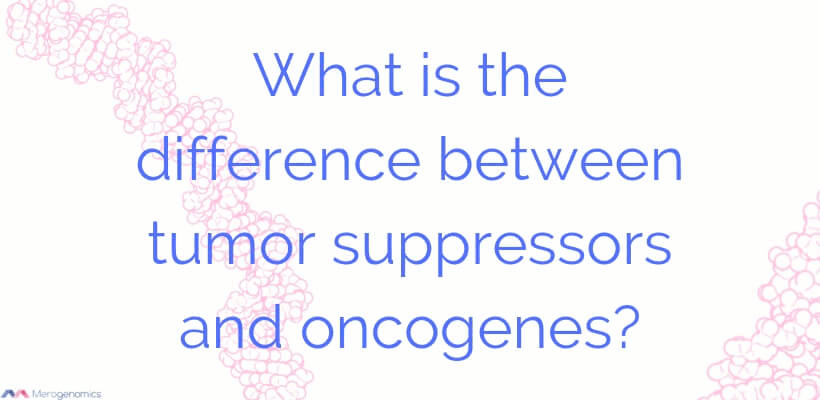
Cancer mutations and drug resistance
10 / 11 / 2018Posted by:Dr.M.Raszek
The current prevailing theory is that drug resistance in cancer is caused by the heterogeneity of cancer cells, meaning that cancer itself is made up of many differently mutated cell types. So that while a specific drug may kill off the bulk of the cancer cells, in this mixture of cancer cells, some cells will already have some resistance to the drug from the start, and eventually will flourish. This is why the current concept for the best cancer treatment option is to use a combination therapy of multiple drugs to ensure that all of the cancer cells are targeted. There is another possibility that is actually quite fascinating, and that is that cancer cells can mutate themselves in order to acquire resistance.
-
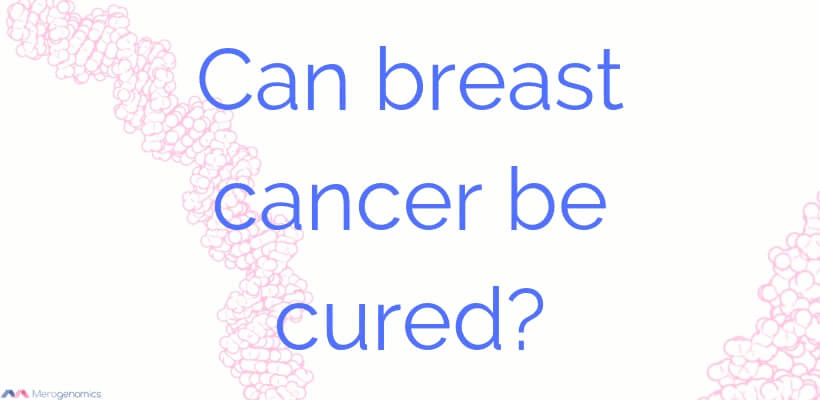
Inherited cancer mutations
30 / 10 / 2018Posted by:Dr.M.Raszek
October is breast cancer awareness month and lots of activities are happening in support of educating women about the best protection against this disease. In no other group is this more relevant than to women with the inherited predisposition to breast and ovarian cancer. Breast cancer now boasts a very high treatment success rate. The treatment of breast cancers has been so successful over the years, that scientists and clinicians are finally discussing the possibility of starting to mention that certain cancers can indeed be cured. So where does the inherited cancer predisposition fit into all of this?
-
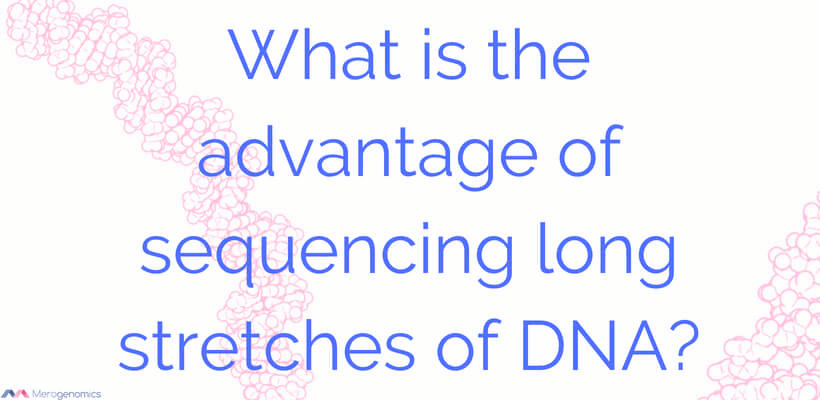
Human versus gorilla DNA – size does matter!
29 / 09 / 2018Posted by:Dr.M.Raszek
There are two types of technologies used to sequence genomes, any genomes. The most common one takes the genome that is cut up into millions of short fragments, and it is these short bits of your genome that are all being decoded by the instrument all at the same time. Computers then put all of these fragments back together to assemble your genome by comparing with an existing reference of what a human genome looks like. Basically imagine if you shredded a book in one of those office shredding machines, and afterwards you had to put it back together. Except that for a human genome, you wouldn’t be shredding one book, you would be shredding a whole bunch of bookshelves worth of books, and then putting it back together. On the other side of the spectrum is a long read DNA sequencing technology. As its name implies, it is a technology that can decode long stretches of DNA at a time. In this case the equivalent would be to try to put the book together with entire pages intact, as opposed to everything being shredded.
-

How we know what we know about medicine - A review of The Drug Hunters by Drs. Donald Kirsch and Ogi Ogas
21 / 09 / 2018Posted by:M.Mulligan
While authors Kirsch and Ogas impressively illustrate the laborious and quirky human process that enabled our discovery of various medicines, they fail to distinguish the limitations of the pharma industry's role in treating mental health.
-

Genome DNA testing in healthy people – what can you find?
31 / 08 / 2018Posted by:Dr.M.Raszek
Very little scientific data has come out to assess the utility of genome sequencing in healthy people. While thousands upon thousands of papers have been published on the use of DNA tests in helping to diagnose conditions in order to help manage existing health problems in the population, very little attention has been paid to healthy people sequencing their genomes, despite the fact that thousands of people have already done so.
-
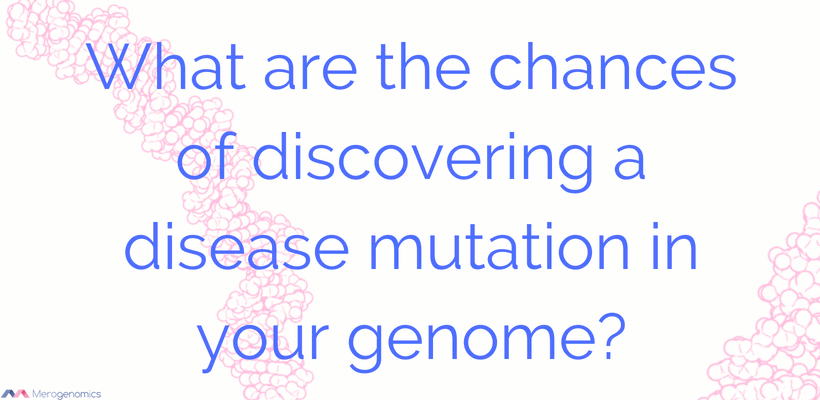
Superhero versus disease genetics – what are your odds?
18 / 08 / 2018Posted by:Dr.M.Raszek
One major question one could (or should?), be asking themselves is, “what are the odds that if I sequence my genome I will find a health risk result?” Or in other words, a result that shows that a person harbours a pathogenic variant that is indicative of disease development. This is still a huge source of contention, and science is continuously pouring in to determine what mutations can truly be associated with disease, as well as how frequently such incidental findings about a threat to your health actually do occur in a population. As more humans have their genomes sequenced, some repetitive patterns begin to emerge.
-
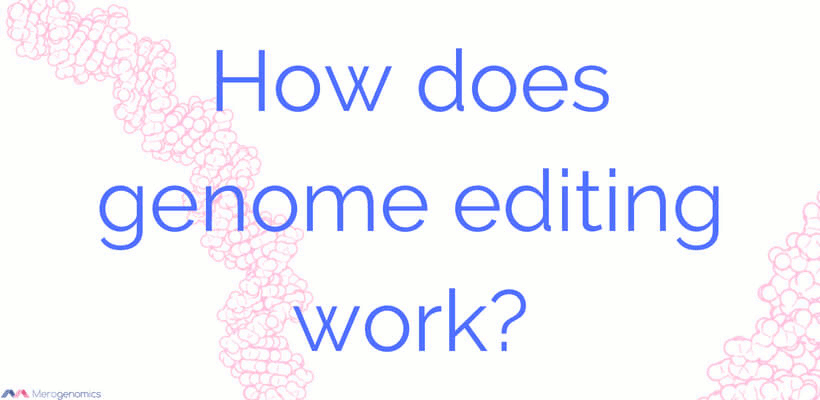
Genome editing enters a new phase
31 / 07 / 2018Posted by:Dr.M.Raszek
The world of genome editing is heating up. Since its invention in 2012 of the targeted Cas9 gene editing system, the procedure has garnered massive funding and attention, and it is no wonder, as the potential medical implications are obvious. Quietly in the background, human embryo experiments are already occurring, setting the stage for what might be expected in the near future.
-

Personalized medicine – is it yet real?
13 / 07 / 2018Posted by:Dr.M.Raszek
Personalized medicine: you have to admit these words have a very good ring to them. It is probably what everyone thinks they are getting whenever dealing with a doctor, although the reality often falls short of that. While obviously every doctor will treat each patient with an individual approach based on their past history, it is not easy or cheap to dish out diagnostic testing to collect personal medical data to manage treatment. Therefore the amount of such testing will be governed by the amount of money available to pay for such tests for everybody. However, personalized medicine has a more defined niche.
-

Epizyme company in search of the first ever epigenetic cancer therapy
28 / 06 / 2018Posted by:Dr.M.Raszek
Tazemetostat is a drug for patients with specific genetically-defined tumors. This is how the future of both clinical trials and personalized targeted therapy is going to be defined. Well, perhaps more accurately, that future had arrived a long time ago, it is just that unfortunately not many oncologists are yet aware of or know how to apply such medications. But everything requires its time to mature, and eventually all of our oncologists will be sequencing patient cancer DNA without a second thought.
-

The Gene by Siddhartha Mukherjee
11 / 06 / 2018Posted by:M.Mulligan
DNA, the history of its discovery, and our ability to manipulate it, are the subjects of Mukherjee’s latest book, The Gene. The story of the gene is a journey across time and scale. Mukherjee eloquently animates the intertwining strands of history and science to demystify the gene and its discovery. He shows the idea of the gene proved to be elusive and counterintuitive to early thinkers. Its discovery was both “dangerous and exhilarating.” Unravel the language of our genome, and you discover inherent limitations of its perfectibility. Mukherjee manages to bridge conceptual gaps in our understanding of our own source code, and situate the reader in debates on the frontier of biology.
-
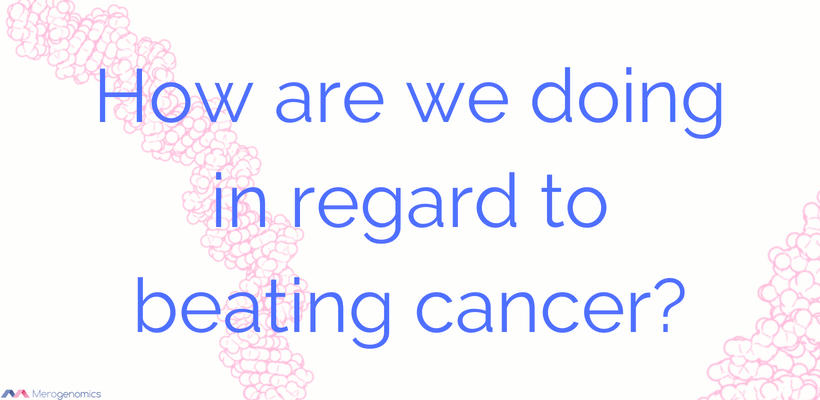
Is the future of patient cancer treatment in trouble?
25 / 05 / 2018Posted by:Dr.M.Raszek
While we are facing an ever increasing number of cancer patients to deal with, the corresponding number of oncologists to meet these needs are not increasing at the same rate. One scientific study that investigated the problem concluded that by 2025 the need for oncologist services will increase by 40% in the US (accounting for more than 83 million visits with cancer specialists), but the number of oncologists to meet these demands will increase only by 25%.On top of that, another study stated that half of the American practicing oncologists could be retiring by 2020. So we are faced with a very serious situation of a shortage of oncologists in the near future, which very likely will negatively impact cancer patient quality care, and exhaust our oncologists.
-

Clinical utility of your genome
10 / 05 / 2018Posted by:Dr.M.Raszek
One of the most frequently-used arguments against direct-to-consumer or direct-to-provider (as in a doctor acting on a consumer’s behalf), DNA sequencing tests is the much-touted lack of the demonstrated clinical utility of such tests. I always somewhat scoffed at this argument, because I saw it as a form of a “chicken-and-egg” type of situation. I obviously agree that consumers need to be protected, and not sold bogus tests that do not provide any benefit. However, on an individual basis, the clinical utility of extensive DNA sequencing tests has been demonstrated copious number of times. But it is true that it has not been demonstrated on a population scale. The good news is that scientific data has been trickling in.
-

Is there a justifiable need for diseases to exist?
29 / 04 / 2018Posted by:Dr.M.Raszek
If mutagenesis is required for the survival of the species, and diseases that are found in the population arise due to such mutagenic events, then could disease prevalence in the population be a sign of a species’ ability to adapt to a changing world? For the survival of a species, a certain threshold level of mutagenesis is needed. Beyond this threshold, if mutagenesis were to be too frequent, the resulting level of diseases could endanger the species by overwhelming its capacity to successfully thrive and reproduce. If the mutagenesis level is far below such a threshold, then it endangers the survival of the species by leading to species DNA that is not versatile. The lack of such versatility could expose the species to rapid eradication because not enough members would be adapted to a completely new environment in order to ensure its ability to thrive. Think of dinosaurs. Or any currently endangered species that has a very low number of individuals. A simple virus infection could wipe such a species out of existence at this point.
-

Cost of cancer treatment - what does it take to beat it?
16 / 04 / 2018Posted by:Dr.M.Raszek
Cancer is specific to each person, in theory no cancer is ever the same, and the molecular profile that drives the cancer development can respond to a specific therapy targeted to those specific broken molecular pathways. Dozens of drug options are now available to specific cancer mutations, paving the way towards the concept of personalized medicine, therapy tailored specifically to each patient’s needs. This is one of the greatest outcomes of the Human Genome Project.
-
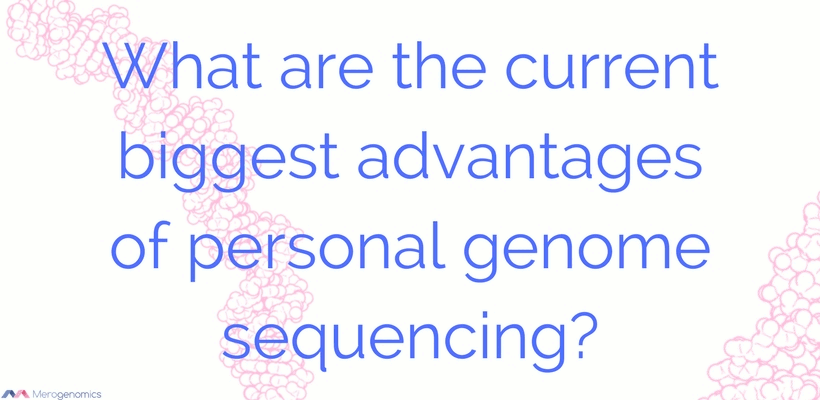
Pesky common diseases have pesky genetic roots
31 / 03 / 2018Posted by:Dr.M.Raszek
The complex traits you inherit exist due to a confluence of many different genes and other areas of your genome, dozens, or even hundreds, of different tiny or big variations dispersed throughout people's genomes. To give you some familiar examples, coronary heart disease, type 2 diabetes, hypertension, and obesity fall into this category. Another famous one is diabetes. As well as many cancers. The underlying genomic architecture behind these problems is so convoluted, that how these genome variations come together to produce the final outcome is just a mystery. So they have not entered the stage of clinical action, but as time goes by, it is expected that one day they will. Which is exciting because a sequenced genome is a genome that keeps on giving!
-

What can go wrong with your NIPT
12 / 03 / 2018Posted by:Dr.M.Raszek
Nothing is ever as simple as it may first seem, and NIPT is no exception. Important work has come out highlighting some of the reasons that might lead to false results in an NIPT test, and they are fascinating. In essence, it is the fact that the majority of NIPT tests do not test for altered numbers of all chromosomes, which can mess up the results. The vast majority of NIPT tests look only for problems encountered with chromosomes 21 (resulting in Down syndrome), 18 (Edwards syndrome), and 13 (Patau syndrome), as well as the sex chromosomes. That's for a good reason, as these are the most common unbalanced chromosome counts (termed “aneuploidies”), and adding extra chromosomes into the test reduces the overall power of the test detection as compared to testing for only chromosome 21 levels (the most commonly encountered problem).
-

Are you the type of person who would hunt for rare treasure?
28 / 02 / 2018Posted by:T.Browning and Dr.M.Raszek
What makes a person rare? By our definition, it is a limited quantity of people, who are deemed unusually good. A rare person is someone different than the “typical” population. The rarest people then, would be those with a rare condition. Would we say they are unusually good? Are they held in high esteem? Do they receive a place of honor? I think you know the answer.
-

Alternative medicine and cancer - warnings to heed
09 / 02 / 2018Posted by:Dr.M.Raszek
We don’t have much empirical data on the comparison effect between alternative medicine’s impact on cancer patients versus the conventional standard cancer treatment. In this case, the conventional medical treatments for cancer include chemotherapy, radiotherapy, surgery, and hormone therapy. So a recent publication that looked into the topic of alternative versus conventional cancer therapy was very important in helping to shed light on this issue. The primary results were somewhat startling, if not discouraging, but also yielded very interesting tidbits of information.
-

Clinical trials basics for patients
27 / 01 / 2018Posted by:Dr.M.Raszek
While clinical trials can conjure up a sense of fear and anxiety, it is more like a white-glove treatment experience for the participants that future users of the same treatment - once it is available on the market - will never experience.
In many instances, these experimental drug treatments might be the only avenue for some people to be able to battle the disease, or ever gain access to such advanced methods of treatment. Due to the rigorousness of the research process, all of the different phases of clinical trials where different groups of participants are treated can last more than 10 years alone, and sometimes regulatory hurdles can delay the public availability of such ground-breaking treatments even further. Thus, patients in a clinical trial can gain access to very important medication much earlier than they otherwise could have.
-

Most gossiped about genetic news of 2017
11 / 01 / 2018Posted by:Dr.M.Raszek
A new year is starting, and what better way to commence this year’s blog entry than with the recounting of the most shared genetic stories on social media in 2017. This can range in a whole gamut of directions, from the absurd to serious drama to political statements to scientific information, and is an interesting reflection of how genetic topics fascinate the public.
-

Personalized conference - Understand Your Genome 2
30 / 12 / 2017Posted by:Dr.M.Raszek
Imagine attending a conference dedicated around the sequencing of your own genome! A conference where every participant has had their genome sequenced, has had their results delivered, and as a part of the conference, for the first time will view their genome on an online app. And you get educated by the biggest names in the industry.
-

Understand your genome
06 / 12 / 2017Posted by:Dr.M.Raszek
The day had arrived when I was going to see my doctor to receive my own genome sequence data and interpretation. I won't deny that I felt little bit nervous! I thought today could be a day in which I find out that I have an incurable disease, or a predisposition to cancer. Am I ready to face such truths? I have grappled with that question before, and it took me a very long time to decide what kind of information I wanted to receive from my genome sequence. Do I want to find out about having mutations predisposing me to diseases for which there are no cures? Like Huntington disease, or Parkinson's? In the end I decided yes. And there were good arguments for it.
-

Designer babies
26 / 11 / 2017Posted by:Dr.M.Raszek
Too often when I introduce to people what I do and what my interests are, I am met with a reaction of fear that the net result of such work will be the modification of offspring to a desired specification, the so-called “designer babies”. I find it somewhat concerning that this is the type of thinking that people can relapse to on their first encounter with the overall concept of human genome sequencing. On the other hand, one has to respect the notion of fear displayed by the public regarding the concept of manipulation of human genomes for satisfaction of someone's aesthetic desires.
-

Current genome sequencing diagnosis success
11 / 11 / 2017Posted by:Dr.M.Raszek
It cannot be denied that next-generation sequencing has tremendously impacted clinical diagnostic potential. If you suffer from a genetic disease that continues to be unsuccessfully diagnosed using traditional approaches (referred to as a “diagnostic odyssey”), then there is a good chance that genome sequencing will be a viable solution.
-

Cow research benefiting human health? Yes!
23 / 10 / 2017Posted by:Dr.M.Raszek
Everyone agrees on the importance of research to make medical progress. How this actually occurs is poorly understood in the general public, but it is assumed that once a treatment enters a clinical practice, it has been well researched. One of the areas of mystery is the role that research on animals plays in the progress of both human and animal medicine. But rather than getting into a debate on the ethics of animal research for human welfare, I wanted to point out a curious example in how agricultural research can also benefit human health.
-

BabySeq, a catchy name, a catchy way to study the future
29 / 09 / 2017Posted by:Dr.M.Raszek
There are massive studies underway in the US right now that are checking into the idea of what societal health benefits can be derived by screening babies upon birth with the sequencing of their genomes. This is a very laborious undertaking, combining the research efforts of many clinical institutions, as well as many scientists and physicians, and is scrutinized throughout the process from every angle possible. It is desirable to find out how good such sequencing would be for babies to be healthier, how accurate the process could be, how dangerous, how costly, and what impact can be expected. It will require many years of examination to bring all of the necessary data required to guide future health policies and standards.
-

Molecular look inside cancer to help a friend in need
28 / 08 / 2017Posted by:Dr.M.Raszek
Cancer. That dreaded word. No one ever wants to hear it. We all know how deadly cancer can be. So when I found out that a friend of mine was diagnosed with a recurrent form of epithelioid sarcoma, my heart sank. Because I know this woman, and I really like her; she has a kind heart, and is always sporting great smile. I felt so helpless. But I study the use of next-generation sequencing all the time and I already knew that the use of genome sequencing has had a valuable impact in the molecular understanding of different cancer types, including selecting the proper treatment type. I did not hesitate for a moment and I let my friend know what I knew, what I believed.
-

Synthesising humans, a modern topic of debate?
27 / 07 / 2017Posted by:Dr.M.Raszek
One genome-related newstory that has stirred the public lately was last year’s announcement of a project to synthetically build a human genome. What do I mean by that? To build an entire human genome, the DNA code that makes each individual unique, with a machine base by base, chromosome by chromosome. You can imagine such information elicited quite a few gasps among the bewildered public.
-

Introduction to non-invasive prenatal testing
25 / 06 / 2017Posted by:Dr.M.Raszek
Our cells continuously die or are destroyed, and as they are broken down, their genetic material can be released into the blood stream. Once in the blood, the circulating DNA will be cleared up in matter of hours, but it is a process that occurs on a continuous basis. This allows for a constant supply of DNA to be in circulation, whether it is that of the mother, or of the developing baby.
-

Chemotherapy and cancer, what are your survival odds?
11 / 06 / 2017Posted by:Dr.M.Raszek
Everyone in the world is familiar with cancer. It is hardly possible to journey through life and not encounter a story of someone who knows someone with cancer. We all identify emotionally with it to various degrees, ranging from fear to empathy. So this is a serious and important subject to be analyzed. And in this study, we are looking at the mortality rates within 30 days of breast or lung cancer treatment initiation. You may think, hey, this should be big news, and it was, but not for the reasons you might expect.
-

How valuable is your personal genome sequence? The public decides!
25 / 05 / 2017Posted by:Dr.M.Raszek
The word value is tricky as it can have very different meanings to different people. It can be monetary, but it can also have a deeply personal value. In this post, we will look at value from multiple angles. How does the public see the medical utility value of genome sequencing? How does the public see the personal utility value of genome sequencing? How does the public see the cost value of genome sequencing?
Which one of these values would be most important to you: medical, personal utility, or cost? It is not a trivial question to answer!
-

How to tell if your genes could be acted on to help
12 / 05 / 2017Posted by:Dr.M.Raszek
"Actionable" genes are the genes that if mutated can lead to serious health complications, but where something can actually be done about it for a patient if discovered. So being able to determine what constitutes a gene with beneficial treatment or intervention to take place is definitely important! This is particularly timely work in light of emerging evidence of genetic testing leading to bad decisions with no benefit to patients.
-

Pregnancies just got new test to study fetus
24 / 04 / 2017Posted by:Dr.M.Raszek
What has changed, quite recently, is how pregnant women have started applying genomic technologies to assess the health risks of their babies, even prior to being born. Colloquially known as NIPT test, which stands for a non-invasive prenatal test, it is a term that is rapidly becoming familiar to pregnant women.
-

Most gossiped about genetic news of 2016
06 / 04 / 2017Posted by:Dr.M.Raszek
The new year is in full swing, resolutions have been almost all forgotten, and perhaps it is time to unwind to a social media biggest buzz of 2016 on topics of genome and DNA sequencing. And there is a lot to choose from, ranging from strange to curious to fascinating and always to the latest science.
-

When your blood is your enemy
30 / 03 / 2017Posted by:Dr.M.Raszek
Life can be seemingly normal, as everything is working fine, until a clot is formed and leads to plugged blood vessel. I probably do not have to tell you that plugging any pipe is usually not a desired event in any typical context, so when it happens in your body, it can be outright dangerous! Thrombophilia is a serious condition that might not even be suspected until a family history is revealed, or a serious condition develops.
-

One meeting to shape the world, one concept to bind us all - human genomics
22 / 02 / 2017Posted by:Dr.M.Raszek
Do you ever wonder what paramount events might be taking place behind the scenes that will shape your life and yet you never even know about it? One such event took place in Vancouver city not that long ago.


